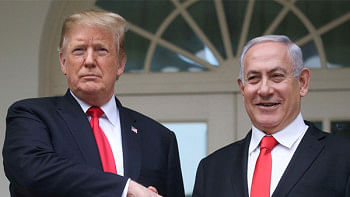For a homeland they would love to return to

We grew up in a joint family. I'm the eldest of the girls, and have always felt like I have to set an example for my two little sisters. So, nine years ago, when I was the first of us to get a national ID card, I was beyond excited. I would be able to vote. I'd have a say in the politics of my country; I was practically a grownup. I told my sisters, quite smugly, that a few years later, Rusafa would be able to vote, and then a few more years later, Rubana would be able to vote too. It was fun being able to brag about something I would be able to do that they were too young for.
Unfortunately, fate had a different, rather embarrassing, plan. Time flew by and my first time to vote finally came in 2018, when both my sisters also became eligible to vote. So, we three sisters, with years of difference between us, would be first-time voters together. Rubana didn't vote though. She, like my other younger cousins and their young friends, was too busy with preparations to go abroad to study to get her NID. As I think about them leaving to start their lives in another land, I feel my heart sink. I feel like a failure for not finding the courage in my heart to tell them not to go, or to return even if they do. I wonder whether they'll come back to cast their first votes in five years.
There was a time when I used to tell them and my friends not to think about settling abroad. I told them that we have a responsibility towards Bangladesh. It was in those times of optimism that I, with my husband, decided that we'd settle in our homeland. We knew it would mean lesser facilities, and it would mean choosing a challenging world over a more developed one. But we were determined that playing our part for the progress of this country was a priority for us. We tried to convince our near and dear ones to do the same and plan to settle at home. Over the years, our efforts became more and more subdued, and today, I'm at a point where I'm forced to question this priority. I am not sure about telling anyone to come back home after they finish their studies. I hesitate to ask my sister and my cousins to apply for admission in Bangladeshi universities. Why ask them when I'm not even sure they'll get fair access, opportunity or freedom?
It's not that these kids don't care for Bangladesh. On the contrary, they've shown us that they care more than any generation before them. This is the generation that took to the streets to stop grownups and check their vehicle registrations and their driving licences. They sent waves of unity rippling through the nation. It was one of the times, besides a cricket match, that we were united as a nation in our aims, in our spirits. These kids' revolution, and the passion shown by older generations like ours in the quota reform movement, had given me hope that we as a younger generation would be united in what we want for our country. But sadly, as I observed everything going on around me in the days leading up to the 11th national parliamentary elections, I realised that we are as divided a generation as our predecessors, if not more.
I'm speaking to supporters, from my generation, of all parties. How much more do you love your country than your party? My expectation from my generation was that we would be ambassadors of what is right, for what is hopeful for our Bangladesh regardless of our parties, our backgrounds, our histories. I thought we'd look to the future together, and that we'd stand united against any immorality that comes our way for the sake of that future. I was naive. And, slowly, the Bangladesh I dream of seems to be moving further and further away.
I wanted to vote for a party, for leaders, that I believe would help us make a Bangladesh where our youngsters would want to come back to. A Bangladesh where "networks and connections" wouldn't be the criteria for access and opportunity in education and in employment. A Bangladesh where "who the boss will be" wouldn't depend on which party wins the elections. A Bangladesh where everyone would be equal, and wouldn't be judged by their party affiliations. A Bangladesh I could tell my sister to come home to settle in someday. For now, it doesn't look too hopeful that we'll ever see that Bangladesh.
I started writing this piece the day before the election, and as I write this sentence, the last hour of voting is about to kick off. Yes, I technically don't know who will win, but the rest of this piece is dedicated to them. Sadly, all the parties we have to choose from are, in case of many issues, merely the two sides of the same coin. And so whatever happens, what I want to say is a message to anyone who is about to take the reins.
I want new rules. I want a rule that the new elected leaders and their families will have to use public transport a few days a week. A rule that the children and grandchildren of leaders will have to study in our country's education system. I want to see who would have the will to want to rule this country amidst such rules. I want transparency, I want accountability, and for these to be used as instruments to test which leaders truly love this country.
I want candidates who will listen to our ideas. I want ministers, MPs who will not silence our voices. I want leaders who will take our ideas, reform them if they're not good enough and will make them better. Leaders who won't discourage or shut down an idea because it came from someone who represents the "enemy" party. Leaders who will put the country before the party.
I want representatives who will fight for our ability to think for ourselves. Representatives who will stand against wrongdoing even if it means sacrificing their own comfort and luxury. I want to be able to support a stand if I like it, and not be branded a particular party supporter just because of it.
I want a parliament that will constructively criticise each other's ideas, not throw mud at each other. I want responsible, kind-hearted leaders, including opposition leaders. I want a party, a team, that will value initiatives and will pursue the half-done initiatives left behind, irrespective of the party alliance, of the team before them.
I'm not for any political party because I haven't seen enough passion—in anybody—to put our nation, our people, before their party. I'm not for only development. I'm not for only democracy. I'm not for political figures who just have rich historical roots or promising futures. I'm for someone who will carry the ideas from generation to generation.
Leaders aren't forever. Ideas are.
Parties don't inspire. Ideas do.
In the end, after all the fights are fought, only ideas are bullet-proof.
Rubaiya Murshed is Lecturer, Department of Economics, University of Dhaka.





Comments